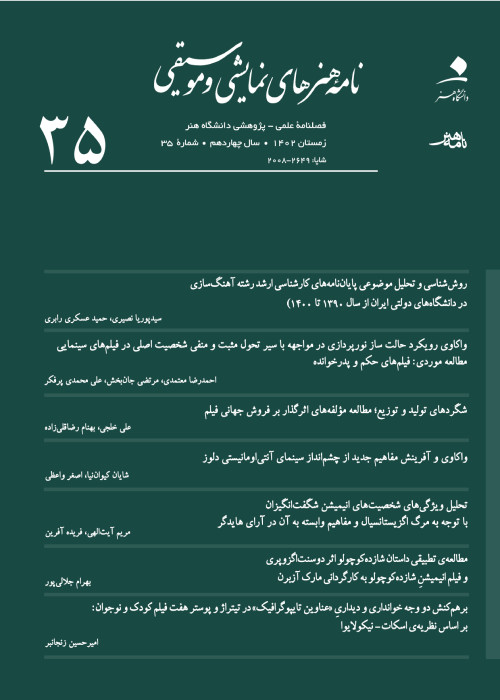Orientalist Approaches in Debussy's Works
Author(s):
Abstract:
This paper aims to study Claude Debussys works (1862-1918) in order to display his longing for the Oriental art, and to examine the new sounds and symbols he introduced to the Western music of the twentieth century. This French composer of the impressionist school, like his predecessors such as Gauguin, the painter of the same school made a lot of effort to find the beauties of the Oriental art, and to associate them with the music of his era. His approach opened new windows of musical connection for the later musicians, and brought about an outstanding evolution in the twentieth century art, by itself. The first spurs of propensity towards the Oriental art was ignited in Debussy by his several journeys and sojourns in Russia and encounter with the ideas of the artists there, especially those of Mussorgsky, also by viewing the East-Asian, e.g. Indonesian, music concerts when visiting the achievements at Exposition Universelle at the end of the nineteenth century. In order to evade the greatest music of his era, especially the German music, and to escape from its overhanging shadow, he felt the need for an evolution in the structure of the twentieth century music, and this transformation became possible via an exploration in the Oriental music. Having heard the music of the Gamelan ensemble of Java, Debussy fell in love with this music and began to compose pieces using the elements of the Oriental music. Using a historical and analytical outlook within the scope of Debussys works, this article analyzes his works from artistic and musical perspectives, and demonstrates that his works, like Estampes and Arabesque, composed in the early years of the twentieth century, all have an Oriental tendency and are inspired by the Oriental music, and that, with a fresh look at the major composition elements, such as rhythm, melody, harmony, and orchestration, Debussy presented a fresh structure of the Western classical music for the later composers. This article will also demonstrate that Debussy opened new pathways of acquaintance for later music enthusiasts and artists, leading the later composers to take firmer steps towards furthering the Western music. Among Debussys important achievements in approaching the Oriental music is the founding of schools and movements such as minimalism in music; admittedly, foundations of sciences, such as ethnomusicology, lie in this outlook of Debussys. One could observe, since then, that the western composers have been searching for fresh elements and new sounds via affinity and cooperation with the instrumentalists and musician of the Orient, and this, per se, has been a beginning for the spiritual encounter of the artists of the East and the West, a significant development and fusion made possible through Debussys efforts, and, quoting Pierre Boulez, Debussy was the turning point of the Western music. By examining Debussys works, this study aims to introduce him as the herald of this colossal movement. Lastly, one can claim that this approach set the foundation for the fusion and synthesis of the Eastern and Western music.
Keywords:
Language:
Persian
Published:
Journal of dramatic Arts and Music, Volume:7 Issue: 14, 2017
Pages:
117 to 131
magiran.com/p1732519
دانلود و مطالعه متن این مقاله با یکی از روشهای زیر امکان پذیر است:
اشتراک شخصی
با عضویت و پرداخت آنلاین حق اشتراک یکساله به مبلغ 1,390,000ريال میتوانید 70 عنوان مطلب دانلود کنید!
اشتراک سازمانی
به کتابخانه دانشگاه یا محل کار خود پیشنهاد کنید تا اشتراک سازمانی این پایگاه را برای دسترسی نامحدود همه کاربران به متن مطالب تهیه نمایند!
توجه!
- حق عضویت دریافتی صرف حمایت از نشریات عضو و نگهداری، تکمیل و توسعه مگیران میشود.
- پرداخت حق اشتراک و دانلود مقالات اجازه بازنشر آن در سایر رسانههای چاپی و دیجیتال را به کاربر نمیدهد.
In order to view content subscription is required
Personal subscription
Subscribe magiran.com for 70 € euros via PayPal and download 70 articles during a year.
Organization subscription
Please contact us to subscribe your university or library for unlimited access!


